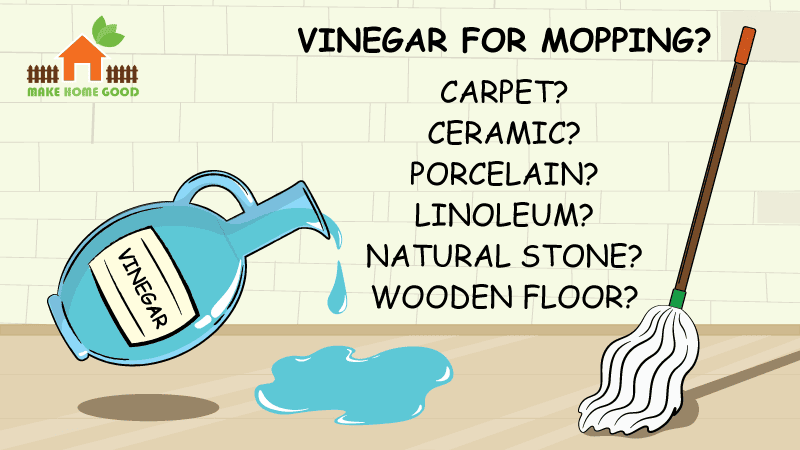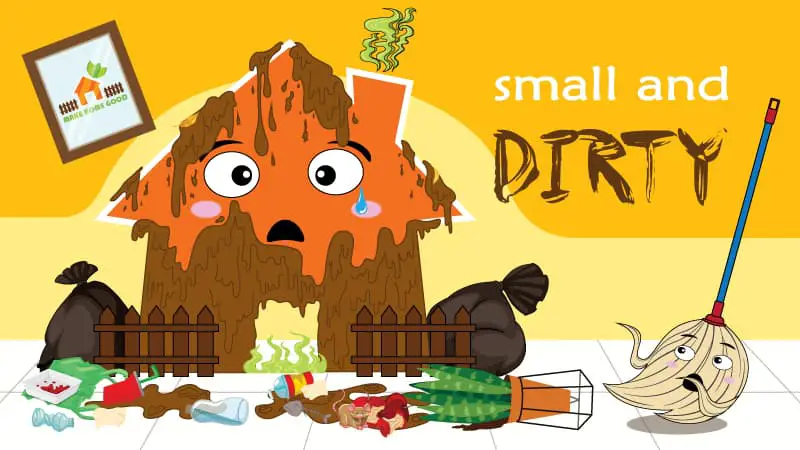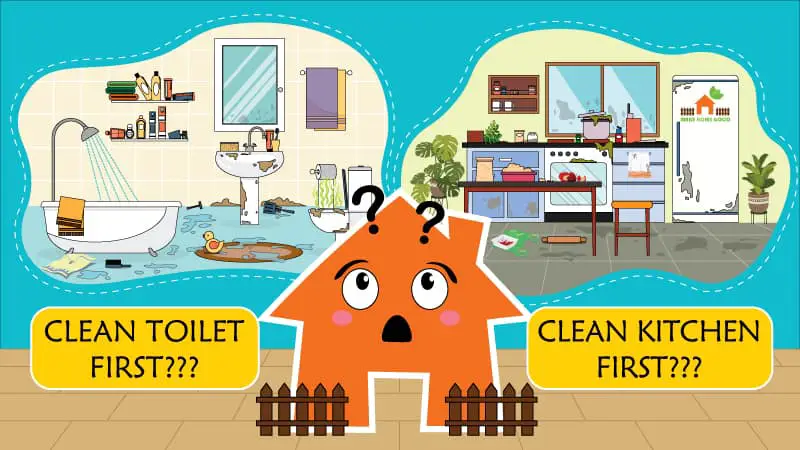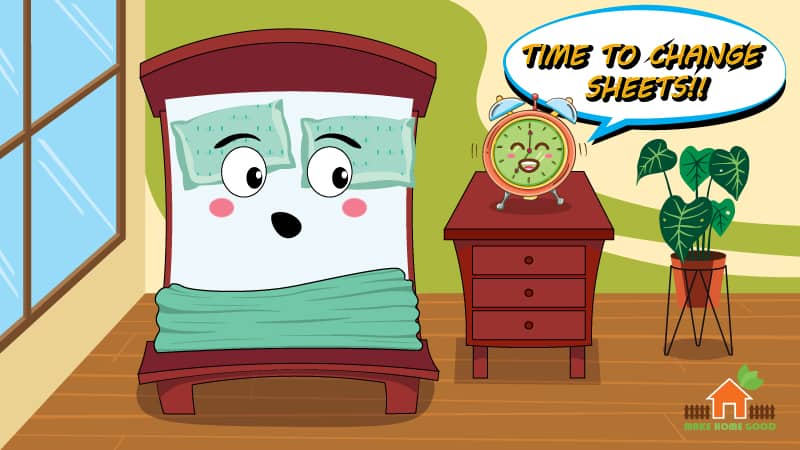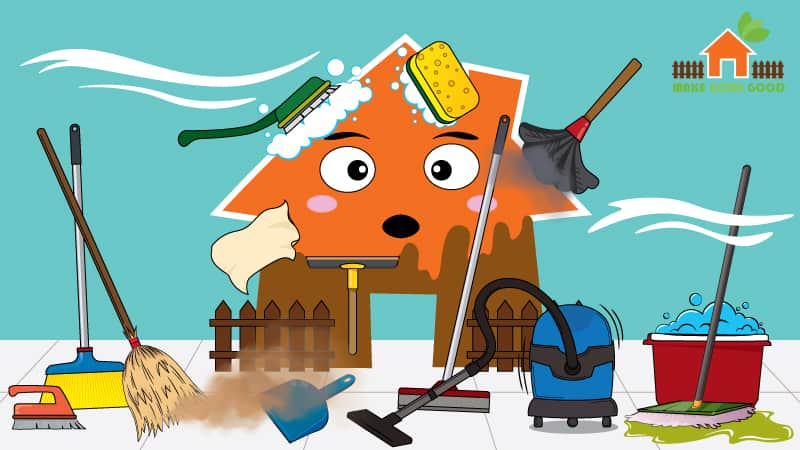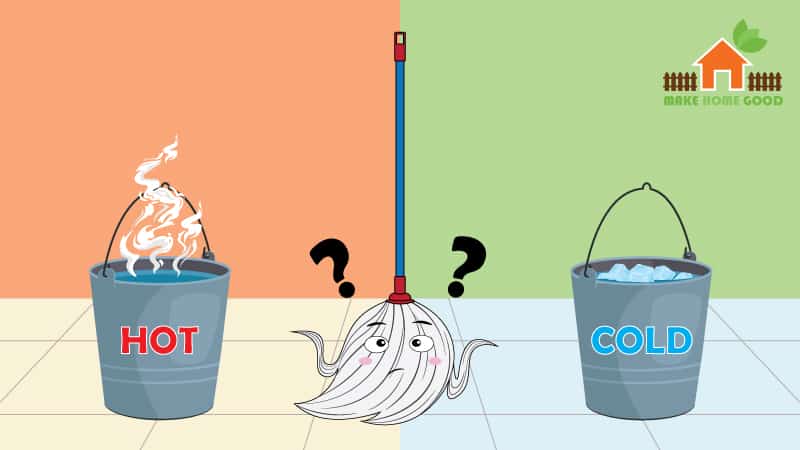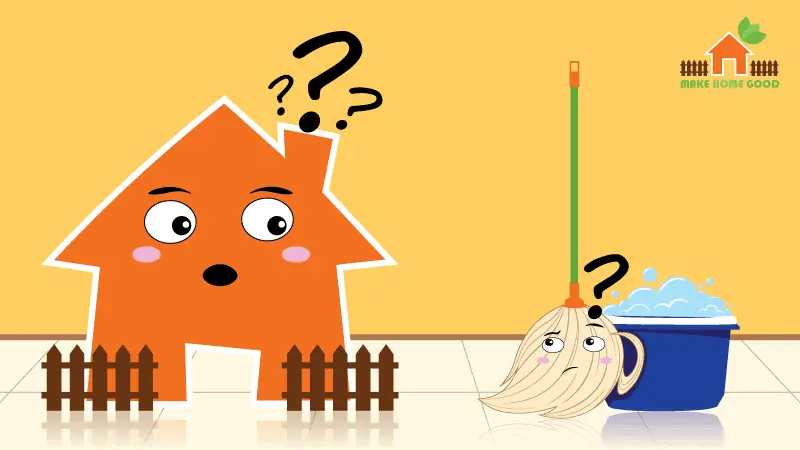So, should you mop you floor with vinegar? Yes, you should! Because it is so simple to work vinegar into homemade floor cleaners, many homeowners are turning to this method when it is time to mop their floors.
Vinegar can be added to homemade floor cleaners in almost any amount. The increased acidity of distilled white vinegar contributes to the cleaning efficacy, making it a popular choice for use on various household surfaces to remove germs.
Vinegar isn’t the best all-purpose cleaner for floors, but it does have its advantages and disadvantages when used in certain situations.
Therefore, before you put it to use, you should consider the situations in which it is most effective and the precautions you need to take into account.
Table of contents
Why Should You Mop With Vinegar?
• Safe Cleaning Detergent. When vinegar is applied to your floor or hands, there are no unwanted consequences. It is a mild bleaching agent you can use on your floor for optimal cleaning results. It makes no difference what sort of floor you are applying the detergent too.
It works quite well in the majority of flooring. Vinegar will always produce the best effects when used in daily cleaning. It is one of the most effective detergents for achieving a flawless floor.
• Vinegar can be Used on Most Floors. Vinegar is an effective element that may be used on a variety of floors. Simply combine it with water and wipe the floor with the resulting cleaning solution. It is particularly effective at eliminating germs and removing stubborn stains.
• Vinegar is a Natural Deodorizer. There are numerous advantages associated with natural substances. If you are looking for a strategy to guarantee success while applying natural components, then vinegar application cannot fail you.
In the majority of residences where it has been used, it has proven to be quite beneficial in assisting homeowners in achieving the greatest outcomes after cleaning their floors.
• Can Remove Tenacious Stains. Even on floors with tenacious stains, the detergent is extremely successful in removing the spots. Vinegar is particularly efficient for removing stubborn stains from any type of flooring.
It is the most effective method for removing the most tenacious stains off floors. Therefore, you can use it to achieve the finest results when cleaning your floors on any surface.
• Friendly to children and animals. The application of vinegar on floors does not produce harmful reactions in dogs or children. If you are looking for an item that will not cause unpleasant reactions in your family, then vinegar may be the perfect option.
It contains active components that destroy germs but will not irritate the skin of children or anid mals.
Should you Mop with Vinegar to Clean Carpets?
Yes, vinegar can be used to clean carpets and rugs. If you have stains on your carpet or rug, spray the mixture of warm water and white vinegar (in a 1:1 ratio) on the stain. Allow the solution to sit for eight to ten minutes, then blot the stain with a clean, dry microfiber cloth.
You can also eliminate unpleasant scents from your carpets with white vinegar.
The carpet must be sprayed with a solution of one teaspoon of baking soda, one tablespoon of white vinegar, and one liter of hot water.
Allow it to sit for 20 to 25 minutes before scrubbing the carpet using a dry towel or microfiber cloth.
It would be best if you did not use vinegar to clean carpets or rugs made of natural fibers such as wool or silk. This is because this acidic chemical is too harsh for them and might cause irreversible harm.
Should you Mop Porcelain and Linoleum with Vinegar?
The use of vinegar on hard tile and other solid surfaces is highly recommended. The substance’s acidity determines its effectiveness as a disinfectant; the higher the pH, the better.
It is not necessary to dilute your vinegar before applying it to these particular surfaces, but doing so does have several benefits, including the following: It is less harsh on the grout, and the stench isn’t quite as intense as it was before.
Some would imply that diluting a splash of white vinegar into water will claim the same potency and cleaning power. Still, you shouldn’t expect to gain the full benefit from the cleaner if you’re conducting those experiments in your at-home research laboratory.
When it comes to cleaning porcelain and linoleum, a solution that has a higher concentration will operate more effectively. Aim for a mixture of 50% vinegar and 50% water, or use more vinegar and less water.
Consider using this vinegar mopping approach instead if it is not possible to have an entire mopping bucket filled with pure white vinegar, which it most likely isn’t:
After soaking a cloth in a bowl of distilled white vinegar, remove it from the bowl and attach it to the base of a dry mop or a “wet sweeper” kind of device as soon as it has absorbed all of the vinegar. If it doesn’t clip or pinch on, you can secure it with a couple of elastic bands and keep it in place.
The saturated cloth can be used as a wet mop, and it will be able to effectively collect dirt from the ground while simultaneously spreading vinegar around the floor to disinfect it. You will need less vinegar than if you dip a mop into a bucket, but the disinfection power would still be at its highest level.
Should you Mop Ceramics, Stones, and Hardwoods with Vinegar?
It is always recommended to use a vinegar solution that has been diluted to a greater extent when cleaning natural stone, ceramic tile, and wood flooring (think: 1 cup of vinegar in 1 gallon of water).
On these surfaces, the acidic qualities of pure distilled white vinegar are likely to cause more damage than good, and they can also cause the polish or wax finishes to become dull.
Because of the reduced concentration, using vinegar to clean these surfaces won’t be as effective at killing germs as using a stronger solution. Instead, make it a habit to dry, mop, vacuum, and use surface-safe cleansers whenever you need to treat a spot or spill.

